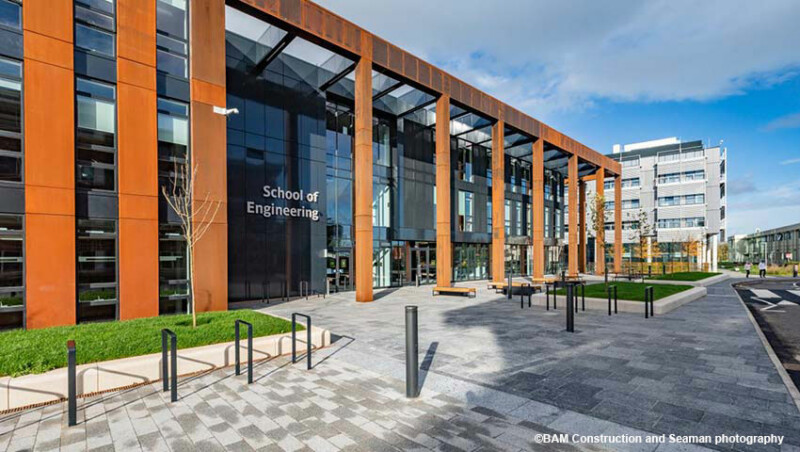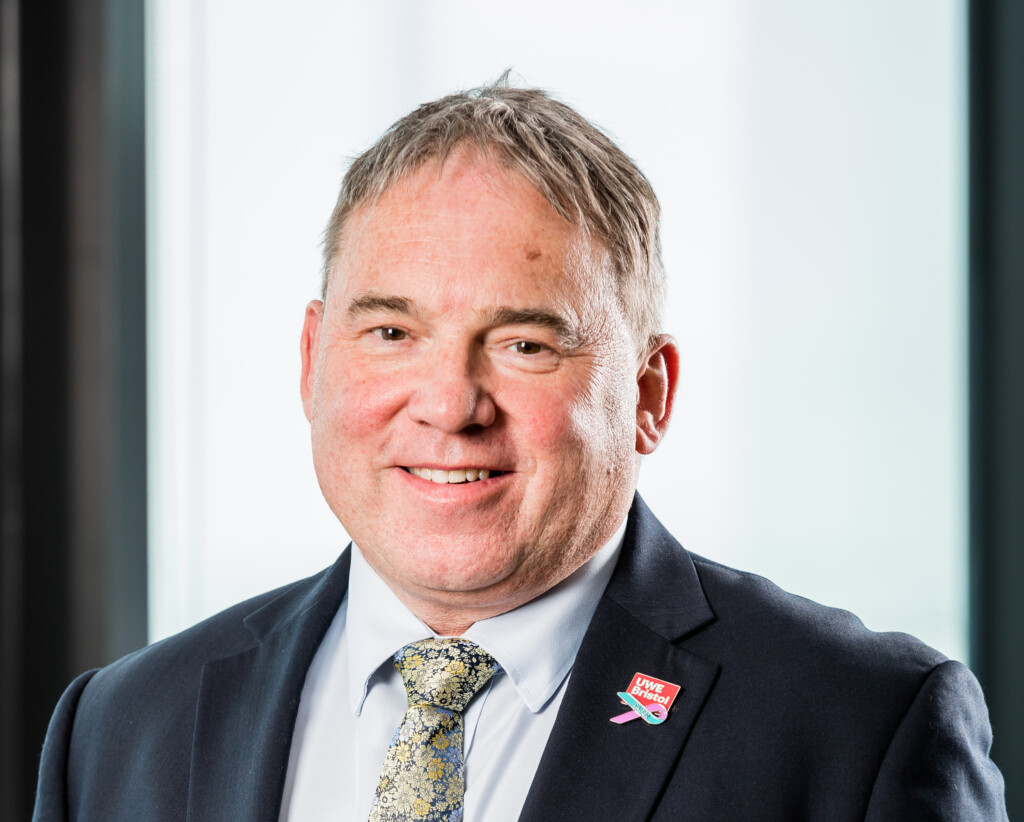Our City, Our Region, Our Universities: What Could the Future Hold?

Share this
Our city region is an environment with huge diversity and opportunity. It has evolved and matured in its vibrancy as a cosmopolitan landscape spanning urban, rural and coastal geographies. Our economy is strong and innovative, and we have significant talent and creativity in our population.
But we have stubborn and substantial challenges to resolve. The question facing us as leaders is: do we have the courage and ambition to truly maximise our potential and work together to realise the best futures for the communities that we serve?
The inequalities we see in education and health outcomes, and experiences of economic and housing challenges, are unacceptable and morally unjust.
We are a city with huge opportunity and potential, juxtaposed with poverty and challenge, and this has to be solved if we are to become a leading player on the global stage.
How do we create this vision and plan to deliver a better future for all, working together as one city region?
I can start by setting out what UWE Bristol brings to the table.
UWE Bristol is in its 30th year as a university. But our roots stretch much further, beyond the days of Bristol Polytechnic and the Technical Colleges before this. Our heritage is founded on the education and skills needs of our region, working in partnership to create the highly skilled and knowledge-rich graduates that we need to contribute and lead across our city and beyond.
Over the last 30 years UWE Bristol has more than tripled in size, from 10,800 full-time students in 1992 to over 38,000 students and 3,800 staff in 2021-2022, becoming one of the largest providers of higher education in the South West. We have grown the opportunities for our communities and are powering our regional workforce, with over half of our graduates each year staying to shape our region, build sustainable and engaged communities, and boost the region’s standing on a national and global stage.
At UWE Bristol we are hugely proud of our partnership ethos, working with schools, colleges, the public sector and industries to continue to strengthen the vibrancy and opportunity in Bristol and our region. Our partnerships have been long-term and sustainable and have delivered huge benefits.
For example, the UWE-led Future Quest regional partnership was set up in 2017 to combat the significant educational inequalities for young people in our region. Since then, we have worked with over 28,000 learners across 65 schools and colleges, significantly increasing progression rates to higher education and broadening awareness of career pathways and opportunities, complementing the important work we do with our partner schools through our School of Education.
We also recognise our key role in driving forward opportunity across the globe, showcasing what our fantastic region has to offer and helping boost skills and learning in parts of the world where we can bring significant benefit. At UWE Bristol we have seen our overseas provision increase ten-fold in the last ten years, providing transformational opportunities through 15 partner institutions in ten different countries. In 2021-2022 over 9,000 students were studying with the University overseas.
We are part of a global community, creating a future which embraces diversity of thought, celebrates creativity and drives forward innovation and improvement in our ways of living.
This is certainly the focus throughout our research – creating solutions to local and global challenges – across digital futures, health and wellbeing, creative industries and technologies, sustainability and climate change resilience. These are areas that will have huge impact for our communities and will empower our city region to showcase its contribution on the global stage.
It is also the focus throughout our business support and engagement. We play a pivotal role for businesses across the region, supporting 2,739 since 2018 to increase productivity, skills and academic expertise, creating a further 650 jobs, raising £9 million in private investment and seeing the creation of 300 new products.
I am hugely proud that UWE Bristol is in, of and for our city region and the West of England, creating inclusive opportunities and powering our economy through our wide-ranging economic impacts, our graduate-talent pipeline and support for innovation and enterprise.
But this is not enough. The future is challenging. We have to change the way we do things in our city region to thrive in the future and tackle the inequalities that are holding us back.
We are operating in a global knowledge and innovation economy that is moving incredibly fast. The environmental, political and technological advances we are seeing will require us to collaborate in ways we have not previously experienced, in order to maximise our creativity and solutions. How do we empower every individual who lives, works and studies here to realise their potential and play their full part in a global future?
We are in a strong position to have two great universities in Bristol, both contributing different opportunities in taught provision, research and innovation. We are complementary and have real potential to do more together. If we look to the wider region, we have four universities and four further education colleges all with quality education, skills development, research and enterprise that broadly complements rather than competes. We have a rich and diverse ecosystem and if we add in our school networks, we have an offer that supports every stage of development and life. Our recently signed Civic University Agreement takes us a step further on collaboration to benefit our local population.
But we are operating in a competitive environment. Many countries are investing much more in their college and university infrastructure, research and access to courses. There is a real danger the UK will slip behind and not be seen as a global leader in the future. This would have a massive impact on the UK’s economy and the experiences and opportunities of every citizen.
So how do we maximise the benefits of our thriving regional landscape for individuals and our communities, and how do we push the boundaries of our current thinking? What would it mean if I could look to one place for information about the diversity of skills, learning and innovation provision in our region and what the different pathways might mean for me? What would it mean for the efficiencies we could create through our ecosystem and how we showcase our potential on the global stage, if we could take a much bolder approach?
As we look forward, I believe we need to radically rethink what universities are for, how they are funded and configured and how they contribute and work in partnership. Over 30 years ago, the Vice-Chancellor of the day, Alfred Morris, described a vision for UWE which was based on a ‘Federated University’ model. Over the years we have increasingly collaborated and brought into the university different types of colleges and provision. I now think we need to move from evolution to a more purposeful, accelerated change in the business model across our region. A model that allows us to better invest and differentiate our provision with specialisms that offer opportunity to all throughout their lives.
We are seeing huge advances in technology that are having an impact on every part of our lives and changing rapidly how we all work, socialise and learn. We need to build a vision for a new innovative group structure which brings together our great universities to better support investment, efficiency and productivity. Under one corporate structure we would have sub-brands and offers that meet different markets, societal and economic needs on a global scale.
I believe that to be able to remain globally competitive in research we must cluster our world-class research environments together and operate as one in the global race to deliver a science and technological superpower capable of solving global challenges. By working more effectively together we will strengthen inward investment, utilise our estates more efficiently and be able to increase our investment in our staff.
By more purposefully working in partnership, we will be able to connect better with communities and industry, better deliver and sustain our net zero commitments and maximise the use of technological advances including Artificial Intelligence and Machine Learning. On this journey, we would reduce cost and duplication in our ecosystem to invest more in our people, research, innovation, teaching and support for students, and to develop new career pathways.
UWE Bristol started its journey as a university in 1992, based on a vision for a new university focussing on the application of knowledge to the economic and social advantage of its region. We have stayed true to this throughout our 30 years. As we look to the future, we need to push the boundaries further. For me, the future is one of collaboration that supports differentiation and personalised learning – offering access and learning opportunities in multiple ways to meet different needs and empowering our city region to thrive.

Steve West is Vice-Chancellor, President and CEO of the University of the West of England, Bristol (UWE Bristol).
This article appears in Bristol 650: Essays on the Future of Bristol, a book bringing together essays from over 30 contributors, addressing some of the challenges the city faces and sharing ideas about how we might meet them. From dealing with the past, the future of social care, culture and housing to building a city of aspiration, the book looks to promote learning about the future of Bristol and encourage new ideas to come forward.
Free copies of Bristol 650: Essays on the Future of Bristol will be available at selected Festival of the Future City events in October 2023, or you can find articles featured in the book at bristolideas.co.uk/bristol650book.
Photo credit: UWE